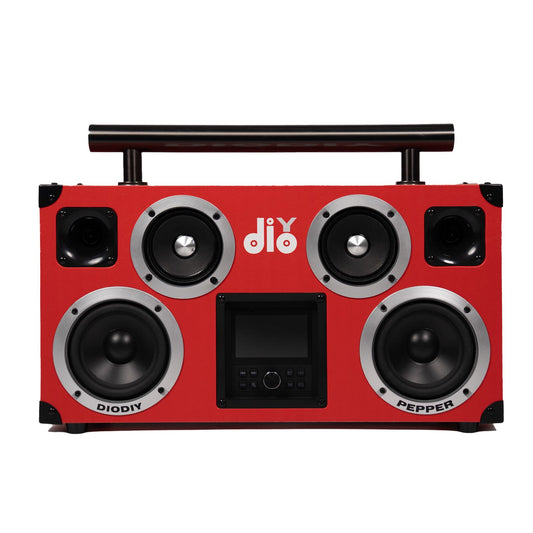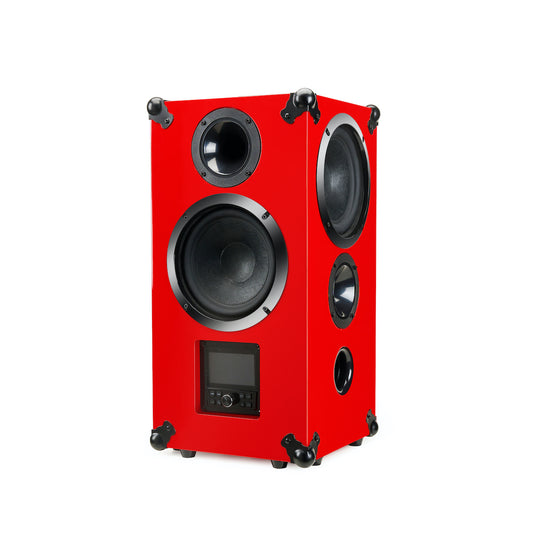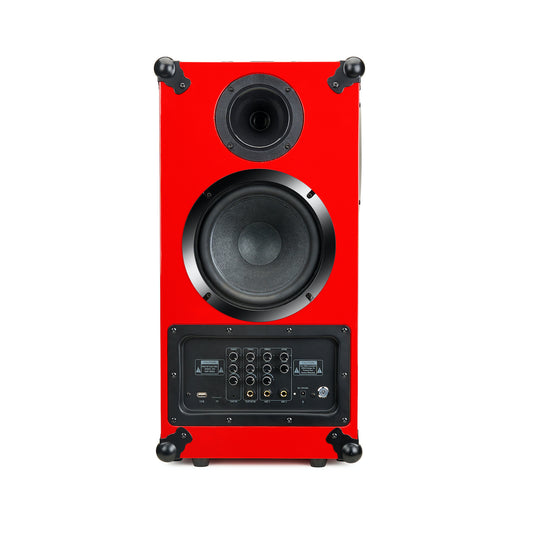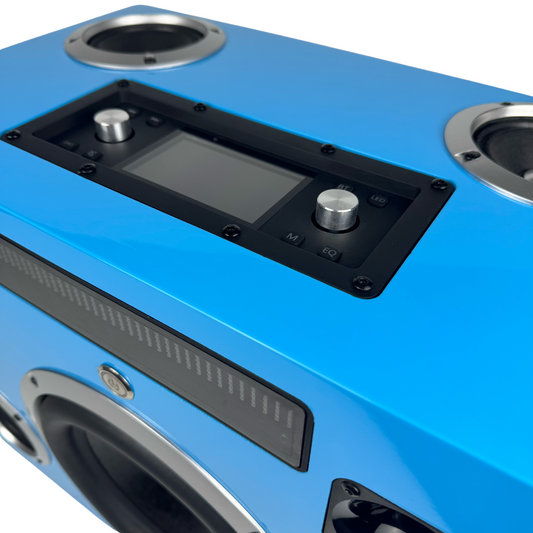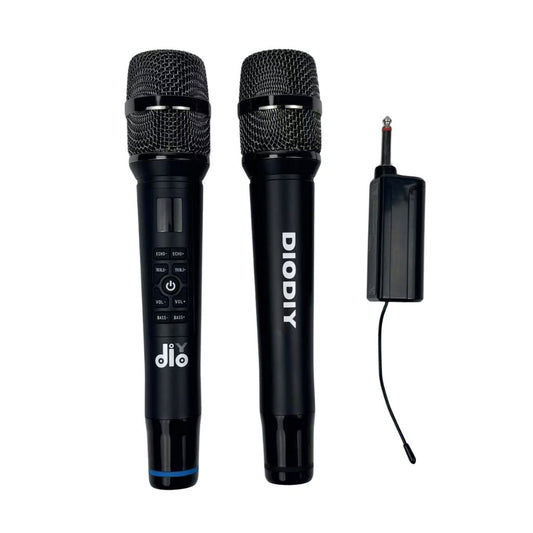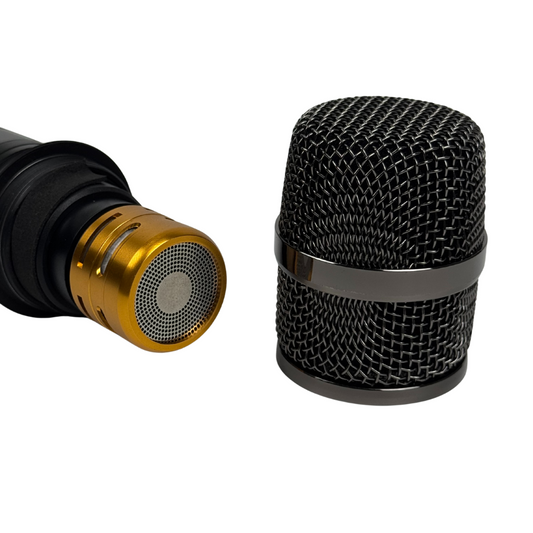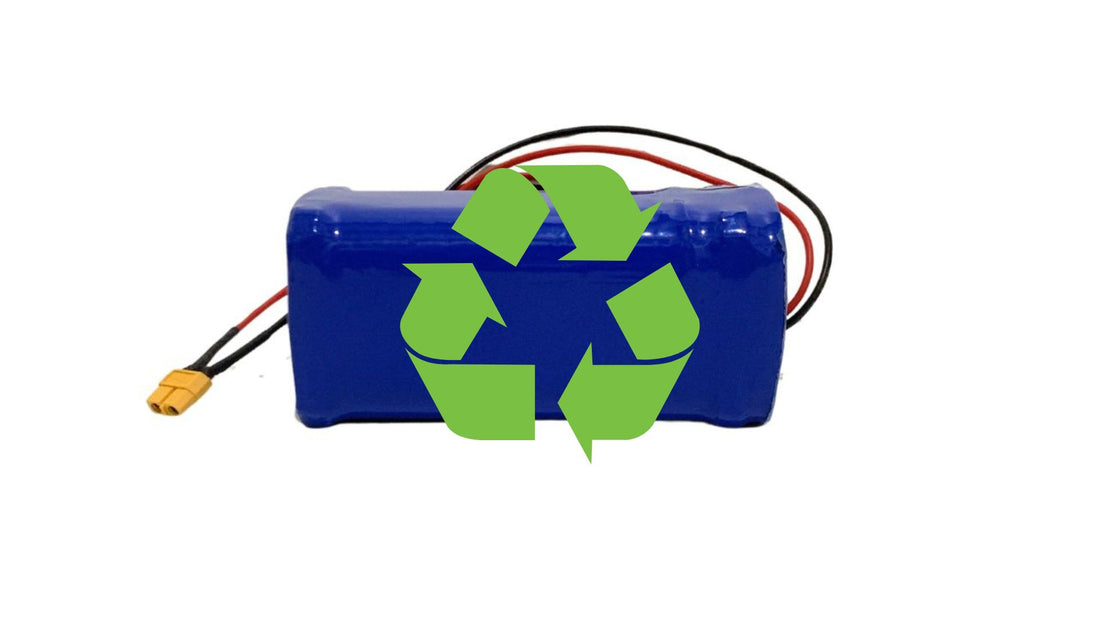
Is LiFePO4 Battery an Eco-Friendly Battery Solution?
Share
In today’s world, environmental sustainability is more important than ever. As we become more aware of the impact our choices have on the planet, finding eco-friendly solutions in all areas of life becomes critical. Batteries, which power everything from phones to custom speakers, are a key area of concern. In particular, lithium iron phosphate (LiFePO4) batteries have emerged as a potential eco-friendly alternative to traditional battery technologies.
This blog explores whether LiFePO4 batteries are truly an eco-friendly solution, how batteries can damage the environment, how LiFePO4 compares to other batteries used in custom speaker systems, and what actions we can take to minimize the environmental impact of battery usage.
How Batteries Can Damage Our Environment
Batteries, though essential for modern electronics, pose significant environmental risks if not properly managed. The production, use, and disposal of batteries have far-reaching impacts that contribute to environmental degradation. Here’s how batteries can harm the environment:
1. Mining of Raw Materials
Batteries rely on materials like lithium, cobalt, nickel, and other metals that are extracted from the earth. The mining process for these materials can be highly destructive, leading to deforestation, soil erosion, and loss of biodiversity. Cobalt mining, in particular, has been linked to severe human rights violations and environmental harm in regions like the Democratic Republic of Congo.
2. Energy-Intensive Manufacturing
The process of manufacturing batteries is energy-intensive, contributing to greenhouse gas emissions and pollution. The energy required to refine and process raw materials into usable battery components often comes from fossil fuels, increasing the carbon footprint of each battery produced.
3. Toxic Chemicals and E-Waste

Many batteries, especially older technologies, contain hazardous chemicals like lead, mercury, and cadmium. When batteries are improperly disposed of, these toxic substances can leach into the soil and groundwater, contaminating ecosystems and posing health risks to humans and wildlife.
4. End-of-Life Disposal
Battery disposal is a significant environmental challenge. Most consumer batteries are not recycled, and those that are not properly disposed of end up in landfills, where they contribute to the growing problem of e-waste. As batteries break down in landfills, they release harmful chemicals that can seep into the environment, leading to long-term pollution.
5. Energy Use During Charging
While batteries themselves can be harmful, the energy required to charge them can also have an environmental impact. If that energy comes from non-renewable sources, it contributes to the carbon footprint of battery usage. This is why energy efficiency and renewable energy sources are important considerations when evaluating the environmental impact of battery-powered devices like custom speakers.
Is LiFePO4 an Eco-Friendly Solution?
Lithium Iron Phosphate (LiFePO4) batteries are often hailed as a more environmentally friendly alternative to traditional battery chemistries, but how do they actually compare? Let’s break down the aspects that make LiFePO4 batteries an eco-friendly solution for custom speakers and other devices.
1. Non-Toxic Materials
Unlike many other battery types, LiFePO4 batteries do not contain harmful heavy metals like cobalt, lead, or cadmium. This makes them safer for both people and the environment, particularly when it comes to disposal. The absence of these toxic substances means that LiFePO4 batteries pose less risk of contaminating the soil and water supply if they end up in landfills.
2. Longer Lifespan
One of the most significant advantages of LiFePO4 batteries is their long lifespan. These batteries typically last for 2,000 to 5,000 charge cycles, compared to the 500 to 1,000 cycles of traditional lithium-ion batteries. A longer lifespan means fewer batteries are needed over time, which reduces the demand for raw materials and decreases the environmental impact of battery production and disposal.
For example, if you use a LiFePO4 battery in your custom speaker, it may last several years longer than a lithium-ion battery, meaning fewer replacements and less environmental waste.
3. Better Thermal Stability
LiFePO4 batteries are much more thermally stable than traditional lithium-ion batteries. This means they are less likely to overheat, catch fire, or explode, reducing the risk of environmental harm during use. While thermal stability may not seem like an environmental issue, the safety benefits of LiFePO4 reduce the potential for hazardous incidents during transport, use, and disposal.
4. Less Energy-Intensive Manufacturing
While LiFePO4 batteries still require significant energy to produce, the overall environmental impact is lower than that of lithium-ion batteries that contain cobalt and nickel. The simpler chemical structure of LiFePO4 batteries results in fewer emissions during the manufacturing process, contributing to their status as a more eco-friendly solution.

5. Lower Environmental Impact of Mining
Although LiFePO4 batteries do require lithium, they do not rely on cobalt, one of the most environmentally damaging and ethically questionable materials used in other battery chemistries. Cobalt mining is often linked to unsafe labor practices and significant environmental degradation. By eliminating cobalt, LiFePO4 batteries reduce the environmental and social damage associated with raw material extraction.
Comparing LiFePO4 to Other Batteries Used in Custom Speakers
When evaluating whether LiFePO4 batteries are truly eco-friendly, it’s important to compare them to other commonly used battery technologies in custom speaker systems. Let’s explore how LiFePO4 stacks up against other battery types:
1. Lithium-Ion (LiCoO2) Batteries
- Toxicity: Lithium-ion batteries often contain cobalt, which poses both environmental and ethical concerns. Cobalt is toxic and can leach into the environment when improperly disposed of.
- Lifespan: Lithium-ion batteries have a shorter lifespan than LiFePO4 batteries, typically lasting between 500 to 1,000 charge cycles. This means more frequent replacements and higher demand for raw materials.
- Safety: Lithium-ion batteries are less thermally stable and have a higher risk of overheating and catching fire, which can result in hazardous incidents.
- Environmental Impact: The need for cobalt and other rare metals in lithium-ion batteries leads to significant environmental damage during mining and production.
Winner: LiFePO4 is more eco-friendly than traditional lithium-ion batteries due to its lack of toxic materials, longer lifespan, and greater thermal stability.
2. Nickel-Metal Hydride (NiMH) Batteries
- Toxicity: NiMH batteries contain nickel, which can be harmful to the environment if not properly disposed of. Nickel mining also has significant environmental consequences.
- Lifespan: NiMH batteries typically have a shorter lifespan than LiFePO4 batteries, resulting in more frequent replacements.
- Safety: NiMH batteries are generally safe but can overheat under certain conditions, posing minor safety risks.
- Environmental Impact: The environmental impact of nickel mining is significant, contributing to deforestation and soil contamination.
Winner: LiFePO4 is more environmentally friendly than NiMH batteries due to its longer lifespan and the absence of toxic metals like nickel.
3. Lead-Acid Batteries
- Toxicity: Lead-acid batteries are highly toxic due to their lead content. Improper disposal can lead to lead contamination in soil and water, posing severe environmental and health risks.
- Lifespan: Lead-acid batteries have a relatively short lifespan, requiring frequent replacements.
- Safety: Lead-acid batteries are prone to leaking and can release harmful chemicals if not handled properly.
- Environmental Impact: The environmental impact of lead-acid batteries is significant due to the toxicity of lead and the energy-intensive production process.
Winner: LiFePO4 is far more eco-friendly than lead-acid batteries, as it contains no toxic lead, has a much longer lifespan, and poses fewer environmental risks.
What Actions Can We Take to Minimize the Environmental Impact of Batteries?
While LiFePO4 batteries are a more eco-friendly option compared to other battery technologies, there are still ways to further minimize their environmental impact. Here are some actions we can take to ensure that battery usage in custom speaker systems and other devices is as environmentally responsible as possible:
1. Opt for Longer-Lasting Batteries
Choosing long-lasting batteries like LiFePO4 can significantly reduce the environmental impact of your custom speaker system. By opting for batteries that require fewer replacements over time, you minimize the demand for raw materials and reduce the amount of waste generated.
2. Recycle Batteries Properly
Proper battery recycling is one of the most effective ways to reduce the environmental harm caused by battery disposal. Many regions have battery recycling programs that ensure batteries are safely processed and that valuable materials like lithium can be recovered and reused. Always dispose of used batteries at designated recycling centers rather than in the trash.

3. Support Responsible Mining
Whenever possible, support battery manufacturers that prioritize ethical and environmentally responsible sourcing of raw materials. LiFePO4 batteries are a step in the right direction because they do not require cobalt, but ensuring that the lithium used is sourced from responsible mining operations can further reduce the environmental and social impact.
4. Reduce Overall Energy Consumption
Reducing the amount of energy you use to charge your battery-powered devices can also have a positive environmental impact. Use energy-efficient chargers, and consider powering your custom speaker system with renewable energy sources like solar power to further minimize your carbon footprint.
5. Choose Eco-Friendly Products
When purchasing batteries or battery-powered devices like custom speakers, look for products that prioritize eco-friendly materials and practices. Many companies are now offering sustainable alternatives that use fewer toxic materials and are designed with the environment in mind. Opting for custom speaker systems and batteries that emphasize sustainability ensures you are making an eco-conscious choice.
6. Extend the Life of Your Devices
By taking proper care of your battery-powered devices and batteries themselves, you can extend their lifespan, reducing the frequency of replacements and, in turn, lowering your environmental impact. For example, avoid overcharging your batteries, store them in a cool and dry place, and follow manufacturer guidelines for usage. These small steps can go a long way in ensuring that your custom speaker system and its battery last as long as possible.
7. Buy in Bulk for Large Projects
For larger custom speaker projects, consider buying batteries and components in bulk to minimize packaging waste and transportation emissions. Bulk purchasing reduces the environmental footprint associated with individual shipments and excess packaging materials, aligning with more sustainable practices.
Conclusion: LiFePO4 Batteries as an Eco-Friendly Solution
Lithium Iron Phosphate (LiFePO4) batteries have earned a reputation as one of the most eco-friendly battery options available today. When compared to other commonly used battery technologies, such as lithium-ion, nickel-metal hydride (NiMH), and lead-acid batteries, LiFePO4 clearly stands out for its longer lifespan, safer materials, better thermal stability, and reduced environmental impact. By eliminating the need for toxic materials like cobalt and lead, LiFePO4 batteries offer a cleaner, more sustainable choice for powering custom speaker systems and other electronic devices.
However, while LiFePO4 batteries offer significant environmental advantages, it’s important to remember that all batteries have some impact on the planet. The mining of lithium and the energy required to manufacture batteries still pose challenges, making it essential for manufacturers and consumers to take action to reduce the environmental footprint of battery usage.
Through proper recycling, supporting responsible mining practices, reducing energy consumption, and extending the lifespan of our devices, we can all play a role in minimizing the environmental impact of batteries. By making informed choices and prioritizing eco-friendly solutions like LiFePO4 batteries, we can move toward a more sustainable future in the battery industry and beyond.
Whether you're working on a custom speaker project or simply looking to power your devices with the least environmental harm, LiFePO4 batteries provide a safe, long-lasting, and eco-friendly solution that aligns with today's growing focus on sustainability.
If you have any questions about LiFePO4 batteries or need assistance with your custom speaker project, feel free to contact us—we’re always happy to help you make the best, eco-friendly choice!

